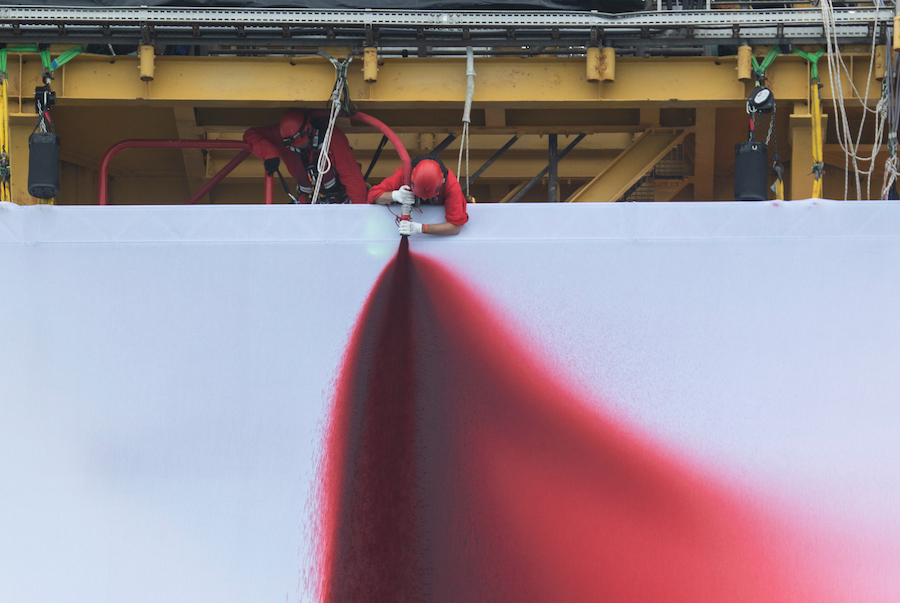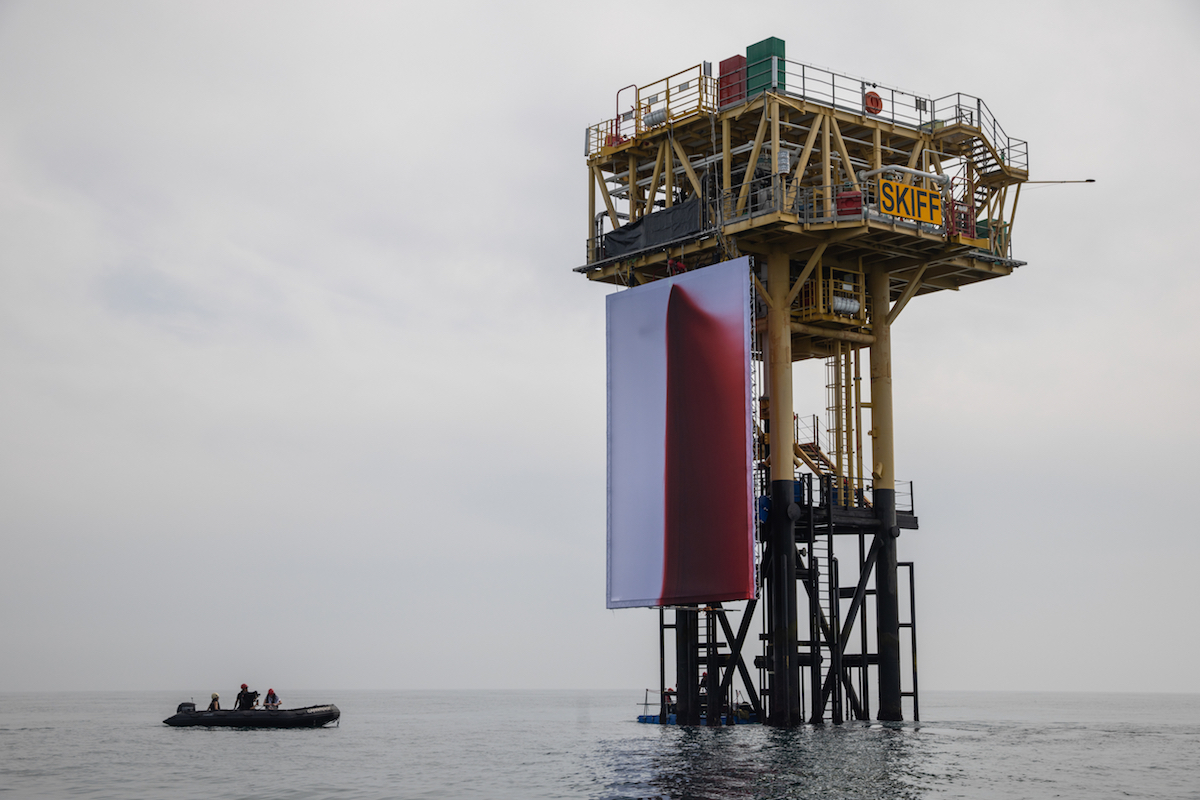Greenpeace climbers have mounted a provocative artwork on a North Sea gas rig as heatwaves ravage the UK and beyond. In a protest, Greenpeace activists have installed a monumental new work by the Turner Prize-winning artist Anish Kapoor on an active Shell gas platform in the North Sea—marking the first time a piece of art has been deployed at a functioning offshore fossil fuel site.
Titled Butchered, the artwork was conceived specifically for this intervention, unveiled as devastating heatwaves, wildfires, and floods—intensified by fossil fuel extraction—wreak havoc across the UK and globally.

Seven expert Greenpeace climbers boarded Shell’s Skiff platform, 45 nautical miles off the Norfolk coast, securing a vast 12m x 8m canvas to its structure. Using a high-pressure hose suspended 16 metres above the sea, they pumped 1,000 litres of blood-red liquid into the fabric, saturating it in a visceral, spreading stain.
The fluid—a non-toxic blend of seawater, beetroot powder, and food-grade pond dye—serves as a stark metaphor for the wounds inflicted by oil and gas industries. Butchered embodies collective grief for ecological destruction while demanding accountability.
The installation coincides with the UK’s fourth summer heatwave, triggering health alerts and devastating crops, while wildfires scorch an area double the size of Glasgow. Europe faces record-breaking temperatures, with Spain evacuating thousands amid uncontrolled blazes. Earlier this month, lethal floods struck northern India and China—catastrophes exacerbated by climate collapse.
Anish Kapoor stated: “Fossil fuel emissions are invisible, but their devastation is not. Shell and other oil giants profit from global suffering while evading responsibility. I wanted to create something physical, immediate—a scream against this butchery. This work confronts the horror at its source: a gas platform in the open sea. It is both an indictment and a tribute to those resisting destruction.”

Shell reported £54 billion in profits post-Ukraine invasion yet paid just £1.2 billion in UK taxes—2% of global earnings. Research estimates the company’s emissions over 30 years have caused $1.42 trillion in climate damages. Despite scientific consensus, Shell pursues 700 new oil and gas projects.
Low and middle-income nations, contributing least to emissions, bear the brunt of rising seas, storms, and droughts. By 2030, climate-related losses in vulnerable countries could reach $580 billion annually—a fraction of fossil fuel industry super-profits.
Philip Evans, Greenpeace UK Senior Campaigner, said: “Extreme weather brings the crisis home, yet fossil fuel extraction remains hidden. This artwork forces visibility onto the harm, right where it begins. While oil giants cash in, ordinary people pay for floods, fires, and failed harvests. Governments must tax these polluters and make them pay.”
Kapoor joins the Polluter Pays Pact, a Greenpeace-backed coalition demanding fossil fuel companies fund climate reparations. The UK could lead by imposing extraction taxes, raising billions for impacted communities. A global survey shows 79% of Britons support taxing oil and gas firms for environmental harm.
This is not Kapoor’s first clash with the industry—in 2019, he urged London’s National Portrait Gallery to sever ties with BP.
Photos: © Andrew McConnell / Greenpeace

